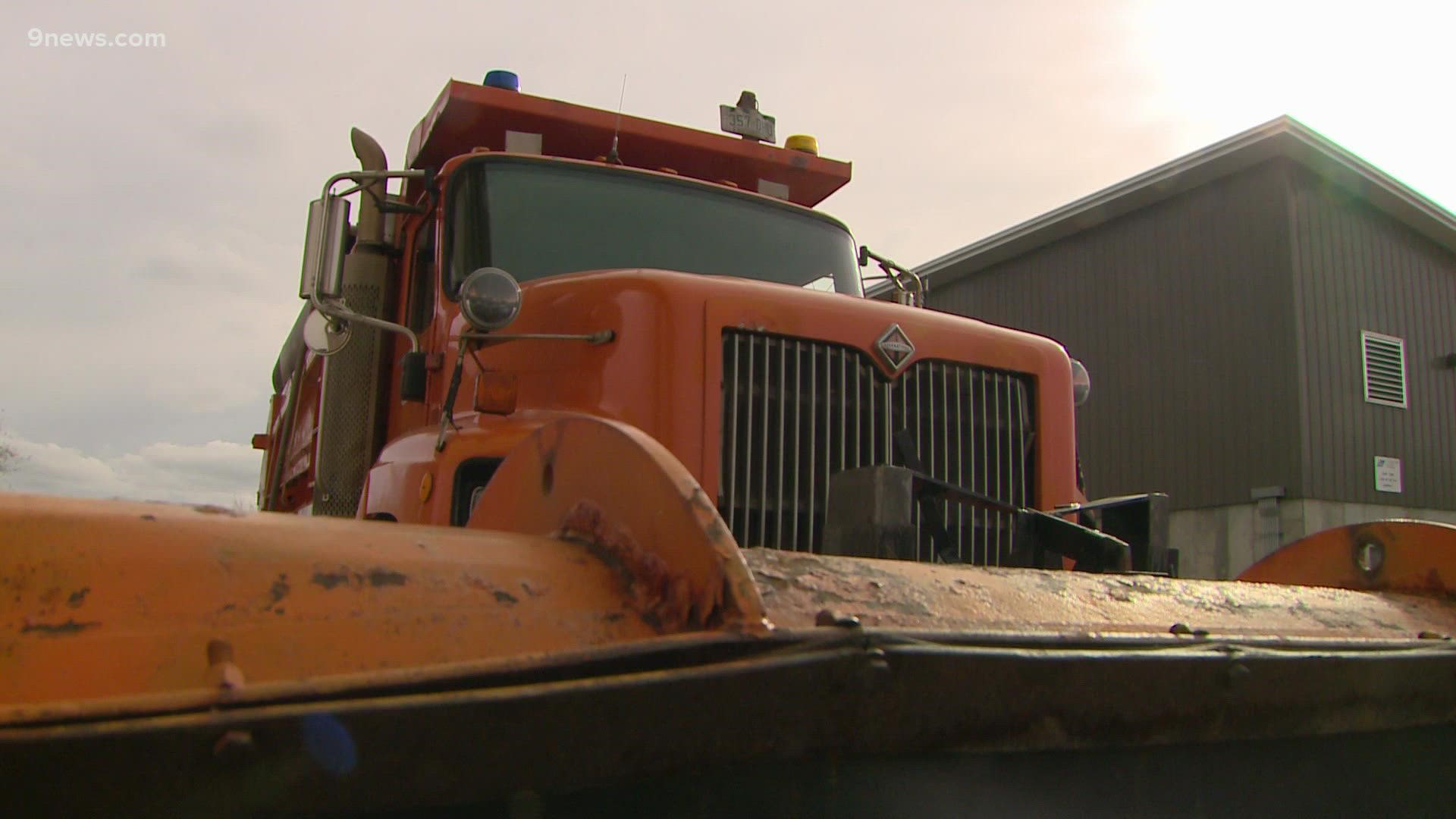DENVER — Snow this week makes for CDOT's first real winter event of the season. And like so many other industries, state snowplow drivers are short-staffed this year.
“Yeah, we're feeling a little bit of a squeeze,” John Joseph Lorme, CDOT’s Director of Maintenance and Operations, said.
“We’re currently about 200 short throughout the state," he said. "Roughly 18% to 19% [vacancy rate]."
Lorme said CDOT has about 1,600 plow driving positions, if every one was filled. But he said it's normal to have some vacancy rate among plow drivers. He said around 10% is pretty standard in the industry. But finding people to hire is especially tough right now.
“It’s difficult to get a Class B, or even a Class A CDL holder," he said. "There’s just not that many out there looking for a job.”
Like other employers, CDOT said it is aggressively recruiting and coming up with new ways to attract and retain talent.
Lorme said a 7.5% pay raise was recently authorized for entry-level transportation maintenance specialists (TMS1). He said that position can make about $45,000, along with a housing allowance for some, as well as additional training. CDOT is also starting to hire people through a trainee program that includes earning their CDL certification in-house, through CDOT, within about nine months.
“So if we can’t find them, we’re growing them ourselves,” he said.
Lorme said CDOT is also offering a new end-of-season performance-based “snow bonus” this year, worth up to $2,000. The agency is also starting an apprentice program that would recruit young adults right out of high school.
So how will fewer drivers affect CDOT’s ability to plow this year? Lorme said they will get the job done with “adjustments.”
That includes more overtime for existing staff, and relying on a backup team when needed.
“Every maintenance section has a fleet service support center, and those gentlemen and ladies are all CDL-qualified. They go through all of our snow training just for this particular circumstance,” he said.
Lorme said each maintenance patrol also has a winter operations plan that can be adjusted based on various uncertainties – when a vehicle needs maintenance, someone calls out sick, or severe weather rolls through one area. That same flexibility can be put to use to handle staff shortages. He said one example would be if a patrol in one area extended its boundary to assist a patrol in a different area.
But even with these solutions, a short-staffed season will be a challenge.
“It might take us a little bit longer to get to the levels of service that we traditionally get when we're fully staffed, but we have to make do with what we have, so we’ll stretch our resources,” he said.
Lorme said drivers shouldn’t be concerned, but should be prepared. He said the driving public has responsibilities during winter weather as well.
“If they can't live and work in the Zoom world, if they have to go to work, the store or the doctor, I just recommend they go prepared,” he said.
“Have your good snow tires, or tires with good tread. Slow down, take your time. Give people additional space, give plows additional space – and you’ll get there," he said.
SUGGESTED VIDEOS: Latest from 9NEWS

